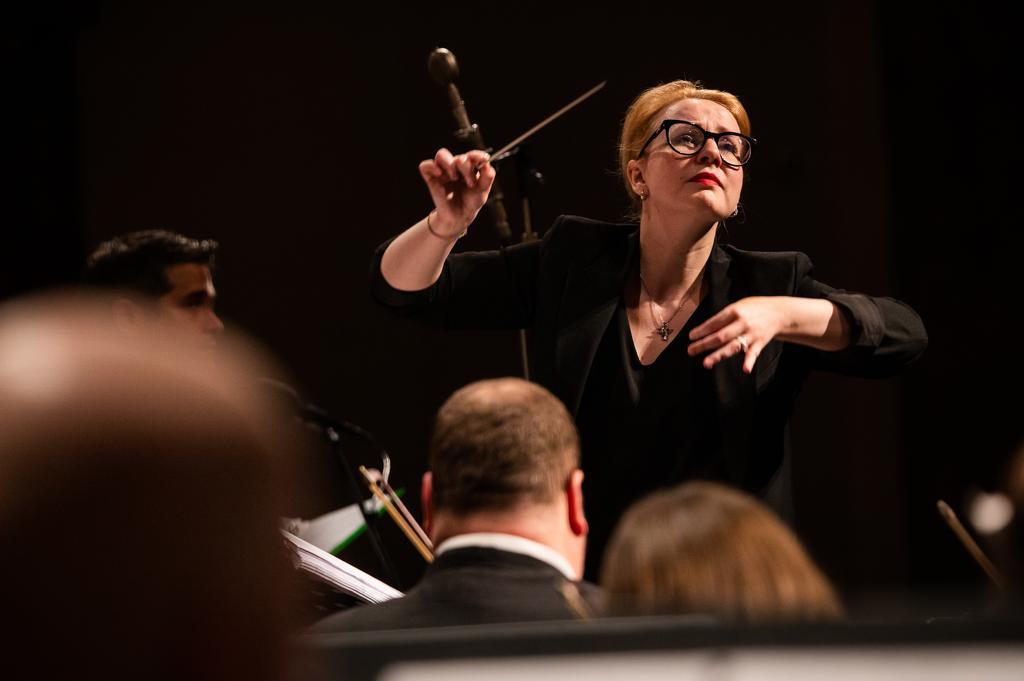
21. 11. 2024, 7 p.m., reprise
Mahen Theatre
Author: Leoš Janáček
Libreto: Gabriela Preissová
Conductor: Anna Novotná Pešková
Director: Veronika Kos Loulová
Ensemble: Moravian Theatre Olomouc
Co-production: Janáček Opera of the National Theatre Brno
First version (1904) in the Mark Audus edition.
The production is produced in cooperation with the organization Úsměv mámy.
Other dates of performance: 20.11. at 7 p.m.
Act 1
The beautiful Jenůfa waits, fearing that her beloved Števa has been taken off to join the army. She is expecting his child and his departure would jeopardise the forthcoming marriage. Števa’s stepbrother Laca also carries a flame for Jenůfa and asks her about Števa. The delighted Števa arrives with his friends and musicians at the mill – he had not been taken away and, together with the other recruits, celebrate their fortune with drink. Jenůfa’s strict guardian Kostelnička sees the riotous company with Števa in front of them all she announces that she would only give her consent for a marriage between Jenůfa and Števa after a probation year, during which Števa would not be allowed to drink. Laca convinces Jenůfa that Števa loves her only because of her beauty, and during the argument he cuts her face with a knife.
Act 2
In fear of disgrace Kostelnička hides Jenůfa in her home and claims to everybody that she has left for Vienna. In the meantime Jenůfa has given birth to a son. Whilst Jenůfa is sleeping, Kostelnička humbles herself before Števa and begs him to marry Jenůfa. For Števa, however, Jenůfa’s scarred face has rendered her ugly and besides, he is already engaged to the daughter of the Mayor. Laca arrives and asks Kostelnička to hand over Jenůfa to him. When Kostelnička gives away the secret to him that Jenůfa had given birth to Števa’s child, he is shocked. Seeing his doubts, Kostelnička in desperation lies that the child had died immediately after the birth. As soon as Laca leaves, Kostelnička drowns the child in an icy river and convinces Jenůfa that she had slept for several days in a fever and the little boy had died in the meantime. The devastated Jenůfa agrees to a marriage with Laco.
Act 3
During the preparations for the wedding between Jenůfa and Laca the news breaks out that a dead child had been found in the river. Jenůfa recognises her little boy’s bonnet and the suspicion of murder falls upon her. Kostelnička admits her crime in front of the assembled guests. Before the Mayor leads her off to court, Jenůfa forgives her, for she understands that she did it out of love for her. Jenůfa does not believe that Laca would still want her and sends him away. Laca however wants to stay by her side and promises that he would be with her even in the bad times. Jenůfa realises that she has found her true love „and God is pleased with it“.
Director: Veronika Kos Loulová
Conductor: Anna Novotná Pešková
Dramaturgy: Marta Ljubková
Scene: Irina Moscu
Costumes: Irina Moscu
Lights: Fiammetta Baldiserri
Choirmaster: Michael Dvořák
One of Janáček’s most famous operas, Jenůfa (or also Her Stepdaughter), tells the story of two women who try to find a way to resolve a difficult situation in a ruthless environment: Jenůfa got pregnant with the irresponsible Števa, who does not want to marry her. Her stepmother, Kostelnička, in an environment where single mothers find it hard to survive and which does not favour women, decides to do something that will change Jenůfa’s fate once and for all. Janáček’s dark opera drama, whose libretto was written by the composer himself based on a play by Gabriela Preissová, was already a source of controversy at the time of its performance. How is it today? How do we treat women in similar situations? Do they get support or do we just look sympathetic but secretly think it’s their own fault? Do we all still believe that the happiest time is supposed to come after childbirth? The production by Veronika Kos Loulová and the all-female production team brings an engaging narrative from the perspective of women who have something to say to the story.
Vilma Bořkovec